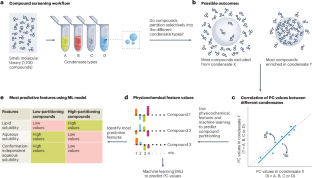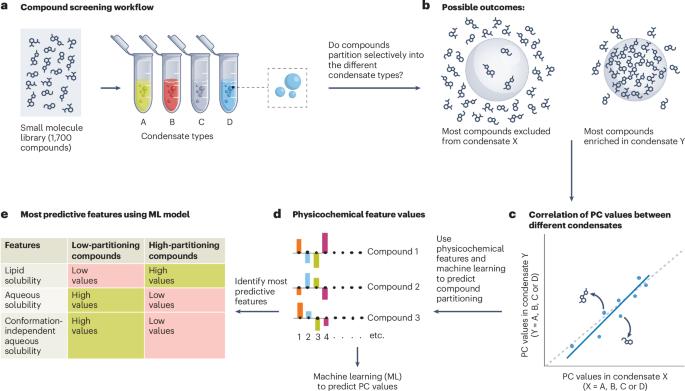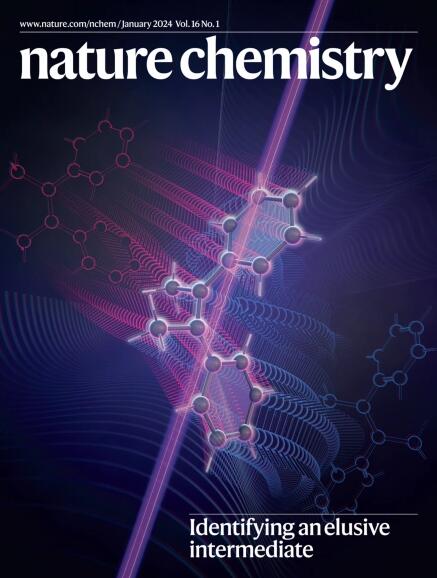小分子在生物分子凝聚物中的分配特性
IF 19.2
1区 化学
Q1 CHEMISTRY, MULTIDISCIPLINARY
引用次数: 0
摘要
被称为生物分子凝聚体的无膜细胞集合体--其中有多种生物聚合物--介导着无数的生物过程。现在,一项研究揭示了物理化学特征,而不是特定的立体化学,会影响小分子是富集在不同的凝聚体中还是被排除在外。本文章由计算机程序翻译,如有差异,请以英文原文为准。


Properties governing small-molecule partitioning into biomolecular condensates
Membraneless cellular assemblies termed biomolecular condensates — into which diverse biopolymers partition — mediate myriad biological processes. A study now reveals that physicochemical features, not specific stereochemistry, influence whether small molecules are enriched within or excluded from a diverse panel of condensates.
求助全文
通过发布文献求助,成功后即可免费获取论文全文。
去求助
来源期刊

Nature chemistry
化学-化学综合
CiteScore
29.60
自引率
1.40%
发文量
226
审稿时长
1.7 months
期刊介绍:
Nature Chemistry is a monthly journal that publishes groundbreaking and significant research in all areas of chemistry. It covers traditional subjects such as analytical, inorganic, organic, and physical chemistry, as well as a wide range of other topics including catalysis, computational and theoretical chemistry, and environmental chemistry.
The journal also features interdisciplinary research at the interface of chemistry with biology, materials science, nanotechnology, and physics. Manuscripts detailing such multidisciplinary work are encouraged, as long as the central theme pertains to chemistry.
Aside from primary research, Nature Chemistry publishes review articles, news and views, research highlights from other journals, commentaries, book reviews, correspondence, and analysis of the broader chemical landscape. It also addresses crucial issues related to education, funding, policy, intellectual property, and the societal impact of chemistry.
Nature Chemistry is dedicated to ensuring the highest standards of original research through a fair and rigorous review process. It offers authors maximum visibility for their papers, access to a broad readership, exceptional copy editing and production standards, rapid publication, and independence from academic societies and other vested interests.
Overall, Nature Chemistry aims to be the authoritative voice of the global chemical community.
 求助内容:
求助内容: 应助结果提醒方式:
应助结果提醒方式:


